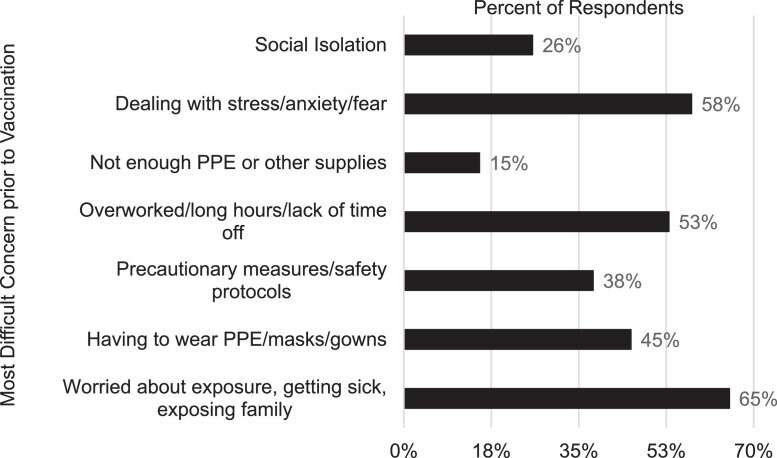Results from question 8: What has been most difficult for your team during the pandemic, prior to vaccination? (N = 66). Credit: Air Medical Journal (2023). DOI: 10.1016/j.amj.2023.01.016
In a recent study published in Air Medical Journal, Rudy Kink, MD, Medical Director of Pedi-Flite, Le Bonheur's emergency transport service, investigated the impact of the COVID-19 Pandemic on pediatric and neonatal transport teams, a group that has previously not been studied in the literature. Out of 66 teams surveyed, Kink and colleagues reported that 62.1% had multiple vacancies on their team during the pandemic.
The most significant reason for leaving a team was compensation, with 40.5% of teams reporting members leaving after receiving a job offer with better pay. When asked to describe their most difficult concern, 65.2% of respondents chose worry about exposure to self and family and becoming ill, while 57.6% of teams said dealing with stress, anxiety and fear was their largest concern.
"We believe that the fear of occupational exposure pre-vaccination was a source of stress and burnout, and when these team members were offered better compensation, it might have resulted in vacancies," said Kink.
Only 58% of respondents reporting having burnout and fatigue recognition training, an important tool teaching healthcare providers stress management and resilience strategies. Future research will focus on identifying strategies within pediatric and neonatal transport teams that promote resilience and retention.
"Resilience training is key to reducing stress and should be the primary intervention that hospital systems focus on to facilitate retention of highly trained transport team members," said Kink.
More information: Paul Dahm et al, A Multicenter Survey of Pediatric-Neonatal Transport Teams in the United States to Assess the Impact of the Coronavirus Disease 2019 Pandemic on Staffing, Air Medical Journal (2023). DOI: 10.1016/j.amj.2023.01.016
Provided by Le Bonheur Children's Hospital
























